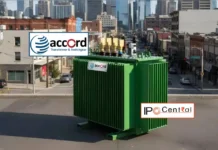
The BSDA account has emerged as a comprehensive solution for small investors. It is suitable for investors who do not trade regularly in shares, bonds, ETFs, and IPOs. SEBI introduced this type of account in June 2012, keeping small investors in mind. Its objective was to provide a simple demat account and facilities for investors with a limited portfolio.
The BSDA full form suggests, true to its name, offers fundamental demat services without the bells and whistles, accompanied by lower charges. Numerous brokerage firms currently provide the option to initiate a cost-free demat account without any AMC charges. However, the BSDA presents its unique set of benefits, particularly for individuals who have no intention of changing their Depository Participants (DPs). This overview encompasses all the essential information regarding BSDA and outlines how one can take advantage of its offerings.
As per the latest SEBI circular (SEBI), starting 1 September 2024, a demat account will automatically be categorized as a BSDA if the following conditions are met.
Read Also: State-wise IPO in India
Exploring the Benefits of BSDA Account
- Lower Annual Maintenance Charges (AMC) – One of the key advantages of a BSDA account is its low maintenance cost. Investors holding securities worth up to INR 4,00,000 are exempt from AMC, while those holding between INR 4,00,000 and INR 10,00,000 are charged a nominal fee of INR 100 annually.
- Encourages Financial Inclusion – By making investing more affordable, BSDA aims to attract more retail investors to the stock market contributing to broader financial inclusion.
- Essential Services at No Extra Cost – Account holders receive electronic statements free of charge, ensuring transparency and ease of monitoring their investments.
- Conversion of Existing Demat Accounts – Investors with eligible accounts are automatically transitioned into BSDA unless they opt for a regular demat account.
The Account Maintenance Charge (AMC) for BSDA is charged based on the value of the holdings. The table below compares the maximum value of holdings under the old and new BSDA guidelines:
| Holding Value (in INR) Before 1 Sep 2024 | Holding Value (in INR) After 1 Sep 2024 | Annual Maintenance Charges |
| Less than 50,000 | Less than 4,00,000 | Nil |
| 50,000 to 2,00,000 | 4,00,000 to 10,00,000 | 100 + GST |
| More than 2,00,000 | More than 10,00,000 | Not a BSDA. Regular AMC may be levied. |
It’s important to highlight that the relief provided to BSDA account holders pertains exclusively to AMC charges. Other charges, including Delivery Instruction Slip (DIS) charges, bounce charges, and the processing of a Demat Request Form (DRF), remain applicable and on par with those of a regular demat account.
Read Also: Highest IPO Subscription
Constraints of the Basic Services Demat Account
While the BSDA account offers numerous benefits, it also comes with certain limitations:
- Investment Cap – The total value of securities held in a BSDA account should not exceed INR 10 lakhs. If the balance surpasses this threshold, standard demat charges apply.
- Limited to One Account per Investor – An investor can only hold one BSDA account across all depositories, ensuring the benefits are targeted toward genuine small investors.
- Charges for Physical Statements – While electronic statements are free, physical statements can be availed for INR 25 per statement.
- Standard Charges for Other Services – Apart from the reduced AMC, all other transaction-related charges remain the same as those of regular demat accounts.
Read Also: List of forthcoming IPOs in India
Eligibility and Opening a Basic Services Demat Account
To open a BSDA account, an investor must meet the following criteria:
- Sole or First Holder Requirement – The investor must either be the sole or primary holder of the demat account.
- Single BSDA per Individual – A person can only maintain one BSDA account across all depositories.
- Investment Limit – The value of securities held should not exceed INR 10,00,000 at any given time.
Steps to Open a BSDA Account:
- Choose a Depository Participant (DP) registered with SEBI.
- Submit the required Know Your Customer (KYC) documents.
- Ensure that the demat holdings do not exceed INR 10,00,000 to qualify for BSDA benefits.
- If already holding a regular demat account, request conversion to BSDA if eligible.
It’s imperative to understand that DPs will not automatically adjust charges based on an investor’s stock portfolio value. The onus lies entirely on the investor to inform the DP of their eligibility. Furthermore, DPs possess systems capable of daily portfolio value calculation and may swiftly revoke the benefits of the cost-effective Account if the prescribed limits are exceeded.

Conclusion
The Basic Services Demat Account (BSDA Account) is an excellent initiative for small investors looking to participate in the securities market without incurring high costs. By providing reduced maintenance fees and essential services, it facilitates greater financial inclusion while ensuring affordability. However, investors must be mindful of the account’s limitations and eligibility criteria to maximize its benefits.
Read Also: Best IPOs in 2024
BSDA Account FAQs
What is a BSDA account?
A BSDA Account is a simplified demat account in India mandated by SEBI, designed to have reduced charges for small-scale investors.
What is the difference between BSDA and regular Demat account?
The only major difference between BSDA and regular demat account is related to annual maintenance charges (AMC). In terms of functionality, there is no difference between the accounts.
What are the benefits of opting for a BSDA?
The sole advantage offered by a BSDA, in comparison to its regular counterpart, is the absence or reduced amount of Annual Maintenance Charge (AMC), while retaining all other aspects unchanged.


































